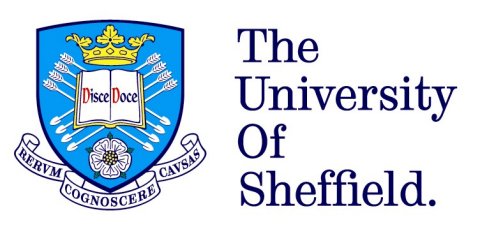Medicine courses in the UK
Introduction to Medicine
Medicine is one of the most competitive courses in the UK and every year thousands of international students are accepted into medical school. If your grades are of the highest standard, and if you can prove that you have set your heart on studying and working in this field, then applying to read Medicine in the UK is for you. 3 As at A-level, including chemistry or biology, an IB of 38 or IELTS score of 7.0 is the academic standard required for undergraduate Medicine.
A strong first degree and a successful career record are required for graduate Medicine and work experience of one day a week for six months in a hospital, care home, hospice or other caring environment is the sort of evidence of intent the medical schools will be expecting and look for. Understanding of the National Health Service and how it works is also crucial for international applicants.
SI-UK is here to help with your application. To get started today, take the first step and arrange your free consultation. Make your application the best it can be by using our Medicine Service.
The entry standards for any medical school are strict and exacting. Interviews for admission can be tough and students should expect questioning on motivation, previous work, personal interests, as well as being able to produce evidence of all previous achievements, including relevant work experience. A number of medical schools will expect completion of the clinical aptitude test, UKCAT.
Careers in Medicine
With the number of positions medical graduates can move into numbering over 60, there is no shortage of opportunity depending on what area you wish to specialise in. Areas of expertise generally fall into the following categories:
- Anaesthetics
- General Practice
- Medicine
- Pathology
- Psychiatry
- Radiology
- Surgery
Medicine Entry Requirements
Undergraduate: If you decide you want to study medicine, you will need to enrol at a medical school, which is often part of a university, but will have strong links to local hospital and medical practises. To initially study at undergraduate level, students will need AAA grades, with ether Chemistry or Biology a requirement.
For international students wishing to study Medicine at undergraduate level, an IELTS score of no less than 6.5 across all four categories - reading, writing, speaking and listening – with an overall 7.0 score generally required at most universities.
If you need to improve your IELTS score, why not join us in London and sign up to one of our courses? A range of IELTS study options are available to suit your needs.
Foundation: Once undergraduate study of two-years has been completed, medical students will then move on to Foundation training, lasting another two-years. This brings together medical school graduates, other postgraduates and various health care providers. Once completed, you will move into your specialist training path.
Speciality Training: Once you have completed four-years of study, now the serious work begins! The entry process once you have decided on which area you wish to specialise in is extremely competitive, so plenty of hard work is needed to ensure you can secure a place in the area you wish to focus on. Training here can last for anything up to seven years, and upon completion you will be awarded a Certificate of Completion Training (CCT).
Other options: If you have completed at least twelve years of schooling with high grades but lack the science and English skills necessary for undergraduate Medicine, The International Foundation in Medical, Biomedical and Health Sciences at INTO St George’s University of London is a good example of how you could progress into the field. A year-long course, if you get at least 75% and succeed at interview you can progress onto the 6-year International Medicine (BSc/MBBS) degree at what is one of the oldest and best Medical Schools in the country. Alternatively if you get 65% you can progress onto their 3-year Biomedical Science (International) (BSc Hons) degree.
UK Clinical Aptitude Test
The UK Clinical Aptitude Test (UKCAT) is part of the selection process of some UK medical and dental schools. It is an online test designed to test cognitive abilities, attitudes, critical thinking, and logical reasoning. There are four reasoning tests and a situational judgement test.
- Verbal Reasoning. Assesses ability to think logically about written information and arrive at a reasoned conclusion: 21 minutes, with 11 passages to read and 44 questions.
- Quantitative reasoning. Assesses ability to solve numerical problems: 24 minutes, 9 tables, charts, graphs etc. as information and 36 questions.
- Abstract reasoning. Assesses ability to infer relationships from information by convergent and divergent thinking: 13 minutes and 55 questions.
- Decision Analysis. Assesses ability to deal with various forms of information to infer relationships, make informed judgements, and decide on an appropriate response: 32 minutes, 1 scenario full of information and 28 questions (basic calculator provided)
- Situational Judgement. Measures your responses in situations, and your grasp of medical ethics: 27 minutes and 67 questions on 20 scenarios.
The test is taken at your local test centre, with each subtest in a multiple choice format. Past papers are not available but there are specimen questions on the UKCAT website. UKCAT must be taken by applicants at the following universities:
Where can I study Medicine in the UK?
Learn more about the best Medicine universities in the UK below:
- University of Aberdeen, School of Medicine
- Barts and The London School of Medicine and Dentistry, Queen Mary, UoL
- University of Birmingham, School of Medicine
- Brighton and Sussex Medical School
- University of Bristol, Faculty of Medicine
- University of Cambridge, School of Clinical Medicine
- Cardiff University, School of Medicine
- University of Central Lancashire Medical School
- University of Dundee, Faculty of Medicine, Dentistry and Nursing
- University of Edinburgh, College of Medicine and Veterinary Medicine
- University of Exeter, Medical School
- University of Glasgow, College of Medical, Veterinary and Life Sciences
- Hull York Medical School
- Imperial College School of Medicine, London
- Keele University, School of Medicine
- King's College London School of Medicine
- Lancaster University, Faculty of Health & Medicine
- University of Leeds, School of Medicine
- University of Leicester, Leicester Medical School
- University of Liverpool, Faculty of Health and Life Sciences
- London School of Hygiene and Tropical Medicine (Postgraduate Medical School)
- University of Manchester, Faculty of Medical and Human Sciences
- Newcastle University Medical School
- Norwich Medical School, University of East Anglia
- University of Nottingham, Faculty of Medicine and Health Sciences
- University of Oxford, Medical Sciences Division
- Plymouth University Peninsula Schools of Medicine and Dentistry
- Queen's University Belfast, Faculty of Medicine and Health Sciences
- University of Sheffield, School of Medicine
- University of Southampton, School of Medicine
- University of St Andrews, Faculty of Medical Sciences
- St George's, University of London
- Swansea University, School of Medicine
- University College London, University College Medical School
- University of Warwick, Warwick Medical School
Apply to study Medicine
If you are interested in learning more about studying Medicine in the UK, arrange your free consultation today. Don't forget the Medicine Service provides interview practice with a doctor who sits on the admission panel of a UK medical school.


 Events
Events News
News




















